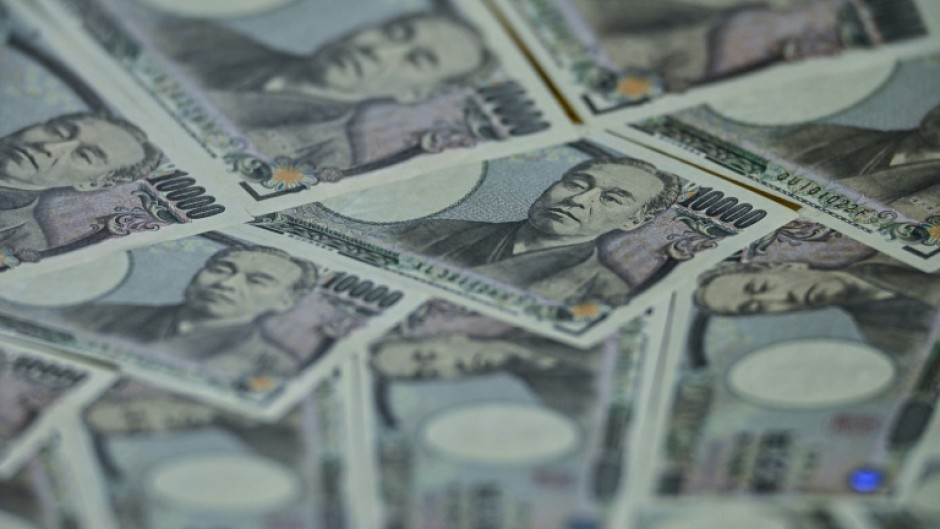US stocks attempted a rebound Thursday as shares elsewhere mostly retreated on fresh worries over interest rate hikes by the Federal Reserve as well as China's economic woes.
Wall Street opened higher following positive earnings results by major retailer Walmart, a day after stocks fell as US Treasury bond yields surged to multi-year peaks.
That followed the publication of minutes from the US central bank's July meeting revealing that "most participants" saw a significant risk that price increases would persist and could require further monetary tightening.
The remarks dealt a blow to investors who had hoped rates were now at their peak following a string of data indicating inflation was falling and the jobs market softening.
There also remains debate inside the Fed about the next move, with officials giving sharply differing views, though the bank has said it will make decisions based on incoming data.
"The visibly hawkish FOMC (policy-setting Federal Open Market Committee) minutes fuelled the Fed hawks yesterday, and the expectation of a prolonged period of hawkish Fed stance is weighing on sentiment, along with escalating crisis in China," Swissquote Bank analyst Ipek Ozkardeskaya said.
London, Paris and Frankfurt indexes were in the red.
"A more downbeat mood is settling in about what lies ahead for the global economy, as China's problems spread into the financial sector, while high inflation still lingers elsewhere," said Susannah Streeter, head of money and markets at Hargreaves Lansdown.
"The FTSE 100 is trading lower, with the Lionesses' winning spirit proving highly elusive to capture, given the concerns unsettling investors right now," she said, referring to the England football team's thrilling advance to the Women's World Cup.
The dour mood had also filtered through Asia, where most major markets were deep in the red.
However, Hong Kong was flat and Shanghai saw small gains thanks to bargain-buying after a run of losses.
- 'Headwind' from China -
Bets on further hikes have pushed the dollar to an eight-month high against the yen, raising the prospect of Japanese authorities intervening to support their currency.
The selling was intensified by worries about China as authorities struggle to revive a stuttering post-Covid recovery.
Fresh figures on Wednesday pointed to a second month of falling new home prices in China, underscoring deep problems in the property sector that observers fear could spill over into the domestic and global economy.
That came a day after news that growth in retail sales and industrial production had slowed.
Leaders this week pledged to boost consumption at home and lift the private sector, though there were no details.
Similarly, promises of help for the property sector and other key areas of the economy have not been followed up with anything concrete.
"Investors looking for more aggressive support from policymakers amid soft activity have been disappointed as the recent incremental measures haven't been sufficient to restore confidence," said Taylor Nugent at National Australia Bank.
US officials have also raised concerns about a possible spillover of China's troubles, with Deputy Treasury Secretary Wally Adeyemo saying they were proving to be "a headwind -- not just to the US economy, but to the global economy".
That came after Treasury Secretary Janet Yellen said Monday that Beijing's issues were a "risk factor" for the United States.

